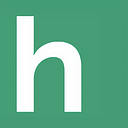Why Painkillers Are a Blessing and a Curse
Numbing our pain can prevent necessary change.
Pain killers are a blessing of modern medicine — to a certain degree. They ease headaches, inflammations and when used in terminal diseases can ease suffering. Taking pain killers can be necessary but very often those pills are the easy and fast solution for many of us. As it is, we’re under constant pressure to be functioning human beings. We have work to do, deadlines to meet. And who wants to miss out on something, when there’re pain killers that numb our pain and enable us to play that important game.
So, this is exactly what we do. We numb the messages of our bodies, to continue with our daily tasks and everyday life — the everyday life that caused our problems in the first place. That everyday life consists of stress, bad nutrition, deprivation of sleep. We have tension in our neck and back muscles from sitting in front of screens the whole day.
We make ourselves susceptible to colds, headaches, back pain, and so on. Still, we want ourselves to work, to function and live, so we fight the symptoms, instead of the cause. But pain killers do have side effects on our body and ignoring the cause will only cause the symptoms to reoccur and lead to higher dosages of pain killers.
Non-steroidal anti-inflammatory drugs work on one of the chemical pathways involved in sensing pain. They inhibit the production of prostaglandins in our bodies, which promote pain, inflammation, and fever. They kill the messenger. And thereby they can cause severe side effects.
In our modern world, it seems almost normal to neglect our health to function for our work or obligations. Often enough paired with personal ambitions. The story of the professional soccer player Ivan Klasnic is a very good example, of how drastic the consequences of painkillers consumption can turn out. In his case, even kidney transplantation was necessary.
When I suffer a migraine attack and the medication eases the pain, I tend to continue my work, as I did before the headache. Before my body tried to warn and stop me. Which mostly results in another migraine attack a day later. I started monitoring how often I need to take triptanes and other painkillers to reduce my headaches over the course of a month and I was shocked. So I tried (and I’m still trying) to reduce the factors that trigger my migraine attacks. Which means I try to sleep more hours per night, I’m not drinking alcohol and I try to take breaks from screen time. It’s not easy but so far I managed to reduce my headaches and thereby my consumption of painkillers in this year. Don’t get me wrong painkillers are a great invention but it’s dangerous to swallow them without consideration.
Maybe reoccurring headaches mean we don’t get enough sleep or we spend too much time in front of a screen. Maybe back pain means we need to stretch more or increase our exercise time. Maybe ankle pain means we need exercises for stabilization and rest from practice. In the end, listening to the pain and altering our life is the healthier option.
Numbing our symptoms instead is dangerous when done over a long period of time. It’s not only, that we’re not getting to the root of our problems, pain killers can have severe side effects. Headaches, stomach, and kidney problems are a few of them. Taking time to regenerate and to pause may seem like a luxury we can’t take for ourselves, but in the long run, we’ll benefit from it. Taking it slow for a few days and resting is not us being lazy, but us investing in our health.
So, the next time, when we see advertisements for how fast painkillers work we should think and reflect for a second. Are our obligations worth neglecting our physical and mental health? Sometimes it’s necessary to get to the roots of our problems and to change something so that we don’t have the need to take painkillers.
In the long run, this is the only way to make us more productive, effective, and powerful.
You just read another post from In Fitness And In Health: a health and fitness community dedicated to sharing knowledge, lessons, and suggestions to living happier, healthier lives.
If you’d like to join our newsletter and receive more stories like this one, tap here.

